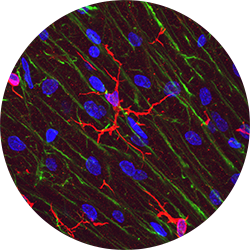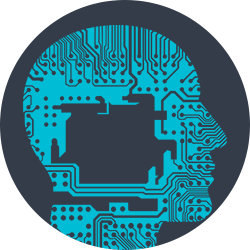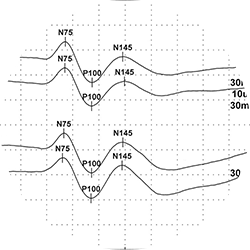 |
Applications of genomics and epigenetics to cognitive neuroscience |
Genomic medicine and the new “epigenetics revolution” have fundamentally shifted the way that we study the brain, and how we diagnose and treat its disorders. This symposium discusses the future landscape of cognitive neurosciences in a world where precision medicine is commonplace, and where simple and scalable blood tests will likely inform diagnostics, patient management and response or suitability for specific clinical trials. We discuss a range of genetic, genomic and epigenetic studies that have and will continue to advance our understanding of the human brain and its amazing ability to adapt to a changing environment.
Chair
- Dr Claudine Krann, Murdoch Children’s Research Institute
Speakers
- Prof. Anthony J. Hannan, Florey Institute of Neuroscience and Mental Health
Genetic and epigenetic modulators of cognitive function in health and disease - Dr Patrick T. Goodbourn, University of Melbourne
Vision as a model system in cognitive and behavioural genetics - Dr Claudine Kraan, Murdoch Children’s Research Institute
Epigenetic DNA methylation biomarkers and the “target gene” approach - Dr Mark Corbett, University of Adelaide
Discovery of coding and non-coding variants that cause neurodevelopmental disorders
 |
Decoding the brain through interdisciplinary approaches in neuroscience |
A symposium from the Australian EMCR Brain Sciences Network |
|
The brain is the most complex organ in the human body. Understanding its computational complexity and how it regulates mental processes in health and disease requires approaches from different disciplines. With this goal in mind, this symposium will bring together emerging national leaders from the Early-Mid Career Brain Science Network, an initiative of the Australian Academy of Sciences and Australian Brain Alliance, who will provide interdisciplinary perspectives to understanding the brain. Fostering new interdisciplinary approaches to problems of brain and behaviour are key for advancements in neuroscience. We now have greater opportunities to work in multidisciplinary environments to drive integrative research.
Chairs
- Dr Hannah Keage, University of South Australia
- Dr Jess Nithianantharajah, Florey Institute of Neuroscience and Mental Health
Speakers
- A/Prof. Sharath Sriram, RMIT University
Artificial synapses using electronic materials - Dr Subhrajit Roy, IBM
Detection, classification, and prediction of epileptic seizures using artificial intelligence - Dr Deborah Apthorp, University of New England & Australian National University
A multidisciplinary approach to diagnosing, tracking and predicting disease progression in Parkinson’s disease - A/Prof. Adrian Carter, Monash University
Researchers’ perspectives on the non-therapeutic use of transcranial direct current stimulation: An international survey
 |
Using MVPA to understand how the brain infers the world |
Multivariate pattern analyses (MVPA) of neuroimaging data have provided significant insights into how our visual world is represented in the brain. This symposium showcases innovative applications of MVPA to probe the robustness and malleability of neural representations across stimulus, expectancy and task contexts. Research presented within this symposium compares the neural patterns that reflect the visual stimulus with neural patterns that reflect what is subjectively perceived or expected.
Chair
- Dr Daniel Feuerriegel, University of Melbourne
Speakers
- Dr Kiley Seymour, Western Sydney University & Macquarie University
Characterizing the response to face pareidolia in human category-selective visual cortex - Dr Amanda K. Robinson, Macquarie University & University of Sydney
Linking adaptive neural responses to behaviour using magnetoencephalography - Dr Tijl Grootswagers, University of Sydney & Macquarie University
The representational dynamics of visual objects in rapid serial visual processing streams - Dr Hinze Hogendoorn, University of Melbourne & Utrecht University
Time-resolved EEG cross-classification as a window on prediction, extrapolation, and error correction
 |
Prediction, prediction-error, and the brain |
One of the brain’s most basic functions lies making predictions about what is likely will occur next. The difference between predicted outcomes and actual outcomes—prediction-error—has been argued to be a universal driver of learning. This symposium will comprise of four empirical studies that have used neurophysiological techniques (e.g., EEG, ERPs) to investigate the neural mechanisms undying prediction and prediction-error. These phenomena will be explored in relation to both externally- and self-generated events.
Chair
- A/Prof. Thomas Whitford, UNSW Sydney
Speakers
- A/Prof. Juanita Todd, University of Newcastle
Hierarchical learning and the dominance of longer term assumptions over local predictions - Ms Jessica McFadyen, University of Queensland
The influence of prior expectations on conscious face perception depends on emotion - Dr Simmy Poonian, Macquarie University
How does executing an action impact the steady state visual response? - A/Prof. Thomas Whitford, UNSW Sydney
Sensory predictions regarding the auditory properties of inner speech